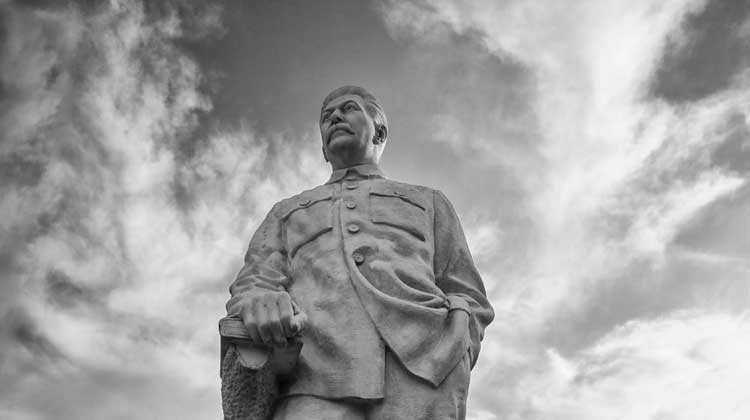
From Claremont Review of Books
Writing a biography of Joseph Stalin is a monumental task, which he made as difficult as possible. He left no diary; nor did he spill his soul as Adolf Hitler did in Mein Kampf. He had many of his family, friends, and acquaintances arrested or killed, leaving us with few accounts of his personal life besides the ones he authorized for propaganda purposes. Those who knew him well and survived—like fellow revolutionaries Vyacheslav Molotov, Lazar Kaganovich, and Anastas Mikoyan—had their own reasons after his death to refrain from offering honest portraits. Even after the opening of the Soviet archives, it became clear that Stalin had carefully curated his papers to leave the image he intended for posterity. So how does a historian get inside the head of one of the most infamous figures of the 20th century?
Stephen Kotkin, the John P. Birkelund ’52 Professor in History and International Affairs at Princeton University, has written two massive volumes, totaling more than 2,000 pages, on Stalin’s life through 1941, attempting to do just that. The first, Stalin: Paradoxes of Power (2014), covers his upbringing and rise to dominance in the Communist Party of the Soviet Union. The second, Stalin: Waiting for Hitler(2017), begins in 1929 and runs to the start of the Second World War. A third, covering the last 12 years of Stalin’s life, is forthcoming in late 2019.
* * *
These volumes represent a remarkable accomplishment. Fully understanding it requires an appreciation of the historiographic debates surrounding Stalin, the object of some of the most virulent arguments among historians and political scientists over the past six decades. Starting in the 1950s, the history of the early USSR was contested by two schools of thought: the totalitarians and the revisionists. The former, beginning with Hannah Arendt and Zbigniew Brzezinski, explicitly argued the equivalency of Nazi Germany and the Soviet Union, grouping them together under the moral and political regime type of “totalitarianism.”
Continue reading here.
Please subscribe to the free weekly Homeland411 electronic newsletter.